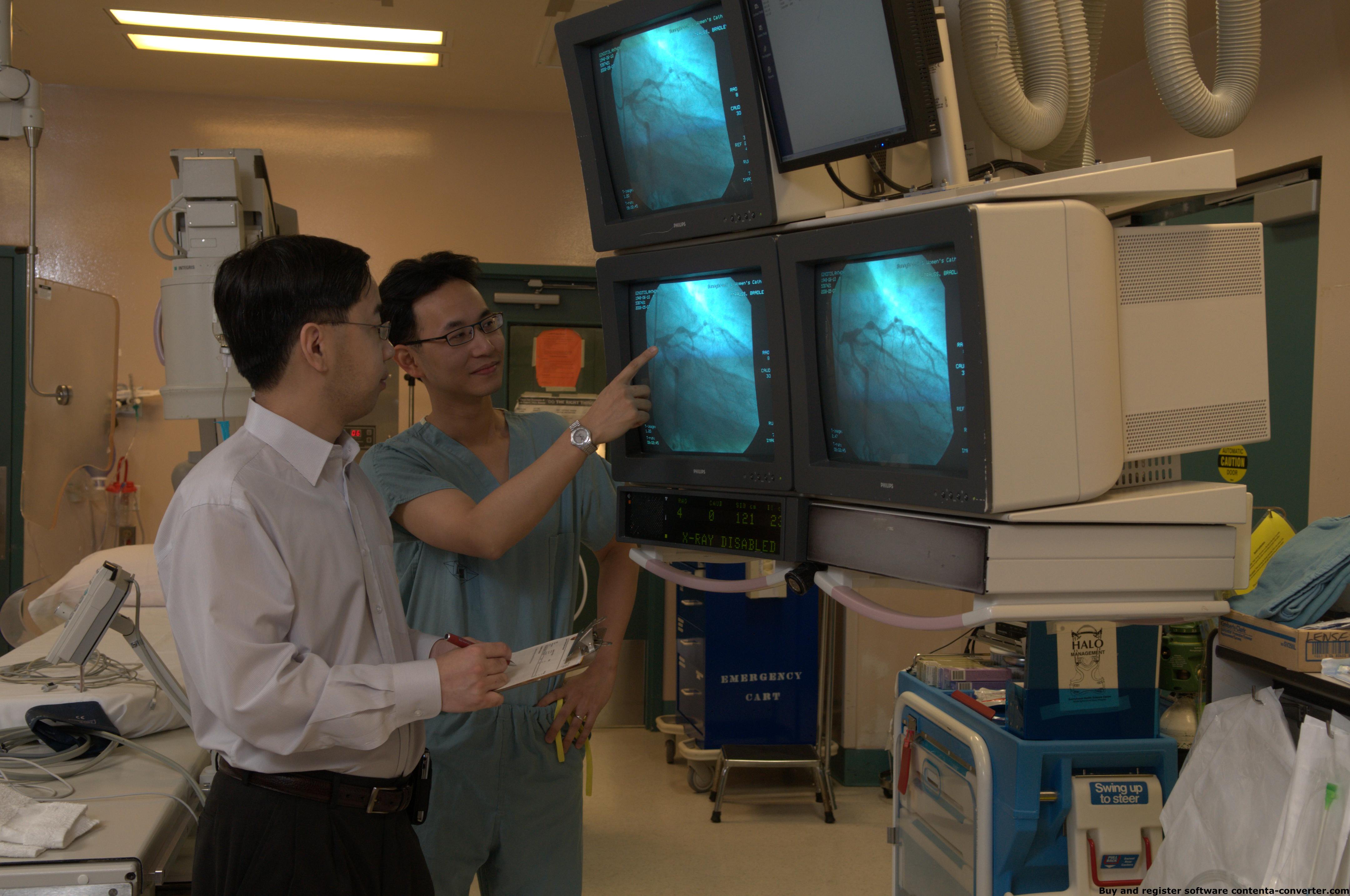Researchers To Examine Rise in Cardiac Procedures
By Jim Oldfield
The Canadian Institutes of Health Research has awarded Dr. Dennis Ko a grant worth $455,119 over three years to investigate the appropriateness of angioplasty and bypass surgery procedures in Ontario.
The study will be the first in Canada to examine whether these costly and invasive procedures, which have increased by 200% and 50% respectively over the past decade in Ontario, are over-performed.
"Recent studies have shown that many of these procedures don't benefit certain patients, such as those whose heart disease is minimally symptomatic," says Ko, a scientist in the Schulich Heart Research Program at Sunnybrook Research Institute and an assistant professor of medicine at the University of Toronto. "We are concerned that the growth in procedures might have outpaced the evidence for performing them, needlessly exposing some patients to the risks of surgery while compromising the efficient use of limited resources."
Possible reasons for the surge in interventions are manifold, says Ko. Physician attitudes and practices don't always keep pace with changes in scientific evidence, so physicians and patients may not be aware that medicines are a viable alternative to revascularization procedures.
As well, some physicians fear the medical consequences of inaction due to anecdotal instances when patients treated non-invasively did poorly, and some have legal concerns—especially in the U.S., where doing something can be more defensible than doing nothing.
"These kinds of initiatives—looking at appropriateness, examining our own practice—have been rare in Canada," says Ko. "The potential implication on how cardiologists practise is big, and will hopefully spur further analyses of resources in other areas of medicine. We need a smarter, holistic approach to utilization that will help us do better for all our patients."
Three steps toward appropriate interventions
Ko and his team will first identity the proportion of appropriate versus inappropriate procedures in Ontario, based on intervention criteria recently redefined by the American College of Cardiology. They will then look at physician, patient and hospital factors known to affect cardiac intervention decisions. Hospitals, for example, have discernable practice patterns: some favour angioplasty, while some tend toward bypass surgery; these patterns can depend on technological resources, patient population and even the mentality of hospital administrators. Last, Ko's group will assess the association between appropriate revascularization and long-term patient outcomes.
The economic impetus for this work is urgent. The cost of an angioplasty procedure in Canada is about $10,000; bypass surgery runs about $25,000. In 2002, two of Ko's colleagues found that angioplasty accounted for an estimated $65 million in expenses in Ontario annually, while costs for bypass amounted to $146 million. Ontario now spends almost one-half of its annual budget on health care, and if costs aren't constrained, that figure will approach three-quarters of all expenditures within a decade.
"I think now is the right time to do this work," says Ko. "In part because of health care reform in the U.S., there is going to be a lot of scrutiny of medical practice—how we save dollars—in both countries." Appropriateness of procedures, Ko notes, often took a backseat to quality-of-care issues during the last two decades of health services research. While that focus improved patient outcomes, he says, research on appropriateness in both countries is increasingly seen as essential.
Harnessing that interest, Ko and his Sunnybrook colleagues, Drs. Jack Tu and Harindra Wijeysundera, plan to collaborate with a U.S. research group that will also investigate rates of cardiac interventions. Says Ko, "We want to be able to see, through a cross-country comparison, the level of appropriateness in each system and how it affects patient outcomes. It should prove quite interesting."



